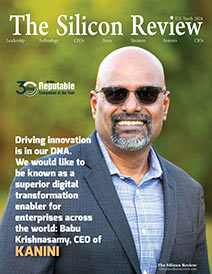>>
Other>>
Press release>>
5 Financial basics college did...5 Financial basics college didn't teach you
The Silicon Review
17 September, 2019
College teaches us many things. We go and take up a major. Besides learning the core subjects of our majors, we also learn prerequisites that are beneficial to all students. These general education classes continue the English, science, and math we learned in high school. But, left out of the core curriculum of basic high school and college learning are personal finances. Read on to discover 5 personal finance skills you did not learn in college.
1) How credit and credit cards work
Credit cards are nice to have if you are paying your balance every month. But, you can run into trouble easy with it. The reason being is that college does not teach you the basics of credit and credit cards. If you are not paying off your balance every month, you are accruing interest. Here are the basics of credit you need to know You will need to pay back every dollar you borrow, interest accrues daily, and the interest rate plays a role in how much you owe every month.
2) How to balance a checkbook
It is important to know how to balance your checking account. If you do not know how to balance a checkbook, you will be introduced to overdraft fees. These are not any fun. Even if you rely on technology to pay your bills, it still will not hurt to learn how to balance your checkbook. It might also be helpful to learn how to write a check. Sometimes, you will find yourself in need of writing a check.
3) The basics of budgeting
Budgeting is an important skill to have. Without it, a young person might be at a disadvantage in life. For those of you who do not like to watch every penny they spend, there is what is called a tactical budgeting plan. With a tactical budgeting plan, you simply plan for life's events as they are coming up. It helps to reach financial goals one step at a time.
4) How to utilize the power of compound interest
Compound interest works to the advantage of young people by allowing them to put small amounts of money in a high-yield interest account. They have time on their side, as opposed to people who are reaching retirement age and can utilize that to their advantage. Even small amounts of money placed in a high-yield interest account will compound year after year. To do so will take some homework finding the right savings account. But, a young person can begin to build wealth.
5) You need to know how to build credit
A person's credit score is an important part of their financial success, Go Clean Credit. You must learn how to establish credit. It will help build your financial security and keep you financially healthy. But, most young people do not know a thing about credit scores and how they work. It will benefit you to learn this. Over time, as you build credit properly, you will realize that your financial future and health are going to be okay.









